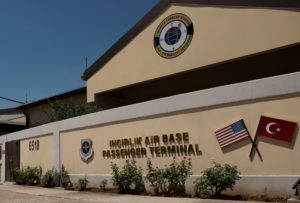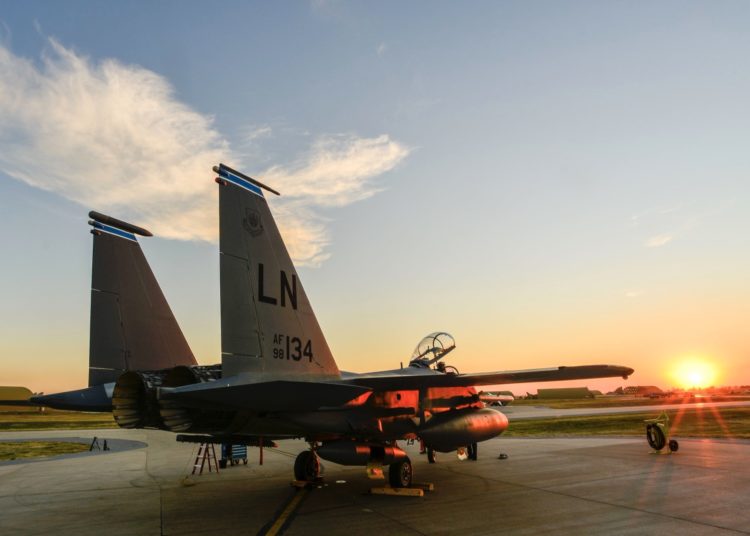Abdullah Bozkurt/Stockholm
A Turkish prosecutor secretly investigated Radar Approach and Control (RAPCON) records at Incirlik Air Base, where the US and allied troops were deployed, as part of a criminal investigation into a coup attempt in 2016.
According to classified documents obtained by Nordic Monitor, the chief public prosecutor’s office in Adana, where the base is located, ordered the seizure of all voice recordings from the flight tower, ground personnel and flight crews on approach or taking off from Incirlik.
One of the documents, stamped secret and dated July 22, 2016, indicated that tape recordings of the UHF and VHF Guard frequencies, UHF-18 Tower and UHF-1 Ground frequencies used for the military in the US section of the base were handed over to the prosecutor’s office. The RAPCON records both in audio and video for aircraft approach, tower and communications with the Air Force operations centers in Ankara and Eskisehir between July 15 and 16 were also sent to the office.
The next day, deputy chief public prosecutor Musa Önel also ordered the confiscation of surveillance video recordings of the War Operations Center at the base, another document indicated. Police and military officers dismantled a video recording device and sent it to Önel’s office.
RAPCON and communications from the US section of Incirlik Air Base were investigated by a Turkish prosecutor:
According to a two-page document, Turkish prosecutors obtained the flight records of all US and allied aircraft that took off or landed at the base on July 15/16. The US and allied military planes appeared to have conducted missions either as routine flights for logistical supplies or in support of the US-led campaign against the Islamic State in Iraq and Syria (ISIS) in neighboring countries.
The documents were discovered in case file No.2016/46625-16.
The wide net cast by prosecutors in the investigation into the attempted coup that involved Incirlik looked more like a fishing expedition and appears to have been designed to help feed into the false narrative of the government of President Recep Tayyip Erdoğan, which claimed that the US was the mastermind behind the abortive putsch, although there has been no evidence presented to support that claim.

Nordic Monitor previously reported how the Adana prosecutor’s office investigated senior Pentagon and State Department officials including then-US Secretary of Defense Ash Carter; Timothy M. Ray, a US Air Force general who was commander of the 3rd Air Force at Ramstein Air Base, Germany; Brig. Gen. R. Bob Bruce, then-deputy commander of Combined Joint Task Force Operation Inherent Resolve (CJTF-OIR), a US-led military campaign against ISIS; Christine Elizabeth Wormuth, the US secretary of the army; and then-US Consul General Linda S. Specht.
The alleged involvement of the Incirlik base, where troops and military assets of the US and other NATO allies were deployed, in the military mobilization on July 15, 2016 was an important part of the government storyline in the false flag coup.
July 15-16, 2016 flight records of US and allied aircraft deployed to Incirlik Air Base:
A significant amount of evidence was uncovered during trial proceedings indicating that the putschist attempt was actually cooked up by the Turkish president and his intelligence and military chiefs as part of a long-planned purge of pro-NATO officers from the alliance’s second largest army. Many officers including the commander of Incirlik Air Base were jailed on dubious charges and in the absence of evidence of any wrongdoing.
Turkish prosecutors in Ankara also launched investigations into US officials and American defense contractor Lockheed Martin representatives over meetings on July 12-13 that dealt with part of a modernization program for Turkish F-16 fighter jets.
The allegations that the US was involved in the attempt were made publicly by Turkish government officials at various times. Interior Minister Suleyman Soylu accused the US of orchestrating the coup on July 16 while events were still unfolding. He repeated the same allegation on a number of occasions, saying that vocal Erdoğan critic Fethullah Gülen lacked the capability of mounting such an attempt. Gülen, a Turkish Muslim scholar resident in the US, has been one of the leading opponents of the Erdoğan regime and harshly critical of Turkey’s aiding and abetting of armed jihadist groups.
Handwritten record of confiscation procedure conducted at Incirlik Air Base and signed by police and military officers. It shows how the Adana deputy chief public prosecutor ordered the seizure of surveillance video recordings at the War Operations Center building:
The government accuses Gülen, a 79-year-old cleric who has been living in the US since 1999, of being behind the failed coup although no evidence has been presented to prove the claim. Gülen himself denied playing any role and asked for an international inquiry to ascertain the real perpetrators, a proposal that Erdoğan declined.
Turkish government officials have raised the possibility of denying US troops an access to İncirlik Air Base amid growing differences with the US on a number of issues including the Erdoğan government’s purchase of long-range missiles from Russia and Turkish military operations in Syria and the eastern Mediterranean.

In January 2018 Turkish Foreign Minister Mevlüt Çavuşoğlu said on government TV network TRT that he had delivered to then-Secretary of State Rex Tillerson the Turkish people’s demands regarding İncirlik during a meeting in Vancouver. In July 2018 Erdoğan for the first time raised the issue of closing İncirlik Air Base to the Americans, followed by similar comments from his neo-nationalist ally Doğu Perinçek.
With the unprecedented purge of more than 4,000 judges and prosecutors and their replacement by partisan, Islamist and neo-nationalist candidates in 2016, Turkish prosecutors and judges are seen as political whips in the hands of the government, which often abuses the criminal justice system to intimidate critics at home and convey political messages to foreign governments.
Many believe the limited military mobilization in 2016 was a false flag operation orchestrated by Erdoğan himself to consolidate power in his hands, push the Turkish military into operations in Syria and Libya and prosecute his opponents on fabricated criminal charges.













